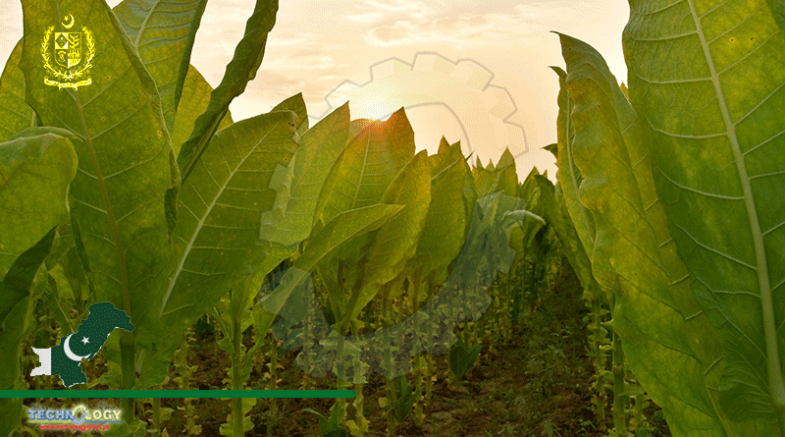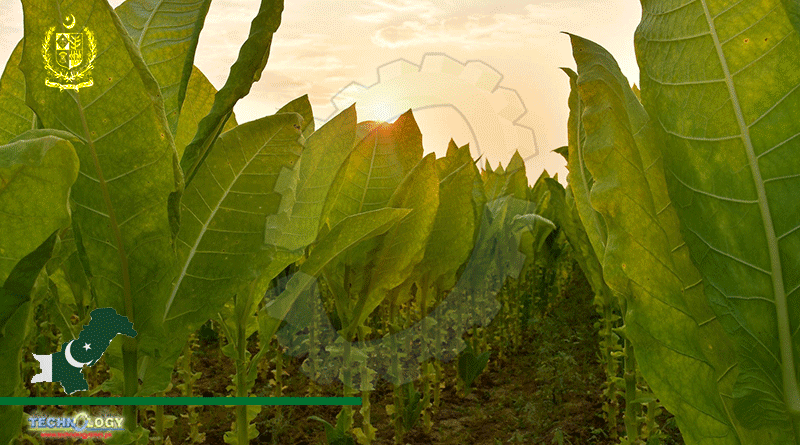Surveys Conducted For The Cost Of Per Hectare For Tobacco Production Leads To Some Serious Technical Faults

The Khyber Pakhtunkhwa farmers have asked the government to establish a chamber of agriculture on the pattern of chamber of commerce to address their grievances and frame a mechanism for the tobacco production and its procurement by the companies. Talking to The News, farmers’ representatives, including Arif Khan, Liaqat Khan Yousafzai, Muhammad Ali Dagiwal, Syed Inayat Ali Shah, Asfandyar and others said that growers in the Swabi district and elsewhere in the province were faced with a host of problems but the government’s relevant departments had failed to safeguard their interests. The tobacco growers, they said, were the worst affected segment of the farming community as they were being fleeced by the tobacco companies as well as the government departments.
The farmers forwarded a number of proposals to the National Assembly Standing Committee on Agriculture and Food Security to work on them to protect the interests of growers and bring about a better change in their lives. Tobacco is cultivated in Pakistan and 80 percent of the total production is produced in KP. The production proportion of seven districts of KP is: 38 percent in Swabi, 25 percent in Mardan, 15 percent each in Charsadda and Nowshera, six percent in Buner and three percent in Mansehra. In KP, tobacco growing provides employment opportunities during cultivation, curing, marketing and in tobacco factories. Around 25,000 families are directly involved in its cultivation and curing while thousands others have got employment in its marketing. Similarly, tobacco products contribute Rs135 billion to the federal exchequer while Rs980 million go to the provincial kitty in the shape of tobacco development cess.
There are a number of reasons responsible for the disparity between the tobacco growers and the tail end marketers and producers. First, in Pakistan, the tobacco growers are bearing a whopping cost of tobacco production themselves while the governments of China, Brazil, Malaysia, India and Bangladesh provide substantial subsidies and technical support to the tobacco farmers. Above all, surveys conducted for the cost of per hectare for tobacco production leads to some serious technical faults, therefore, the government should make efforts to conduct (CoP) surveys through third parties in order to prevent the practice of cheating during fixation of estimates. The survey conducted for the cost of tobacco crop preparation through the third party would help fix real expenditures incurred on the produce. Also, the survey teams must have representatives of farmers, who could safeguard the interest of growers.
Presently, the growers said, the tobacco companies and PTB picked farmers’ representatives for survey, who are not growers and they do not even know about the cultivation and cost of the crop in question. Every year in October, the PTB conducts a CoP survey and the chosen growers are asked about the previous year’s expenses and income. The interviewer then randomly fix the cost for the coming year without keeping in view the soaring expenses of land preparation, fertilizers, pesticides and labour. The companies also used to bind the growers to cultivate specific tobacco verities that are usually brought from foreign countries, including India, Brazil and elsewhere. But, the atmosphere in Pakistan is not conducive for that kind of crop here, which always resulted in huge loss to growers. The growers also demanded amendment to the PTB Ordinance 1968 as it does not mention about their rights.
They said the government should constitute a committee, which keeps a watch on the companies to protect rights of the growers. The growers demanded establishment of a welfare fund for the tobacco growers to carry out some beneficial schemes for the farmers. They said the tobacco products contributed Rs135 billion in taxes to the Federal Bureau of Revenue but the federal government even didn’t spend a single penny on their welfare. Besides these taxes, the government also collects tobacco development cess of Rs860 million and district tax of Rs360 million. “The federal government should allocate 7 percent of these taxes for the welfare of tobacco growers,” a farmer pleaded.
The growers also suggested that tobacco companies, including Pakistan Tobacco Company (PTC) and Philip Morris International (PMI), must earmark funds under the Corporate Social Responsibilities laws to ameliorate the sufferings of affected growers during ailments, calamities and natural disasters. They pointed out that multinational companies give numerous facilities and perks and privileges, including high salaries, health and residential accommodation for staff and their families but were reluctant to facilitate and reward the diligent farmers. In many countries, corporates cut their expenses to facilitate and reward the main producer. The growers said that the National Assembly Standing Committee on Agriculture and Food Security headed by NA Speaker Asad Qaiser should hold meaningful dialogues with the tobacco companies to find ways to decrease the expenditures of tobacco farmers and increase their income.
This news was originally published at The News
